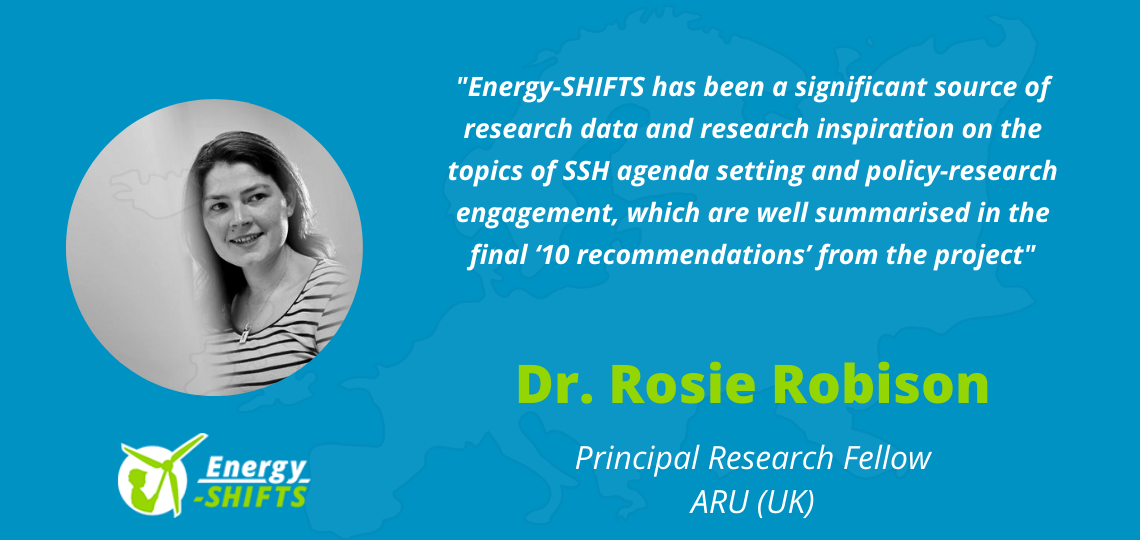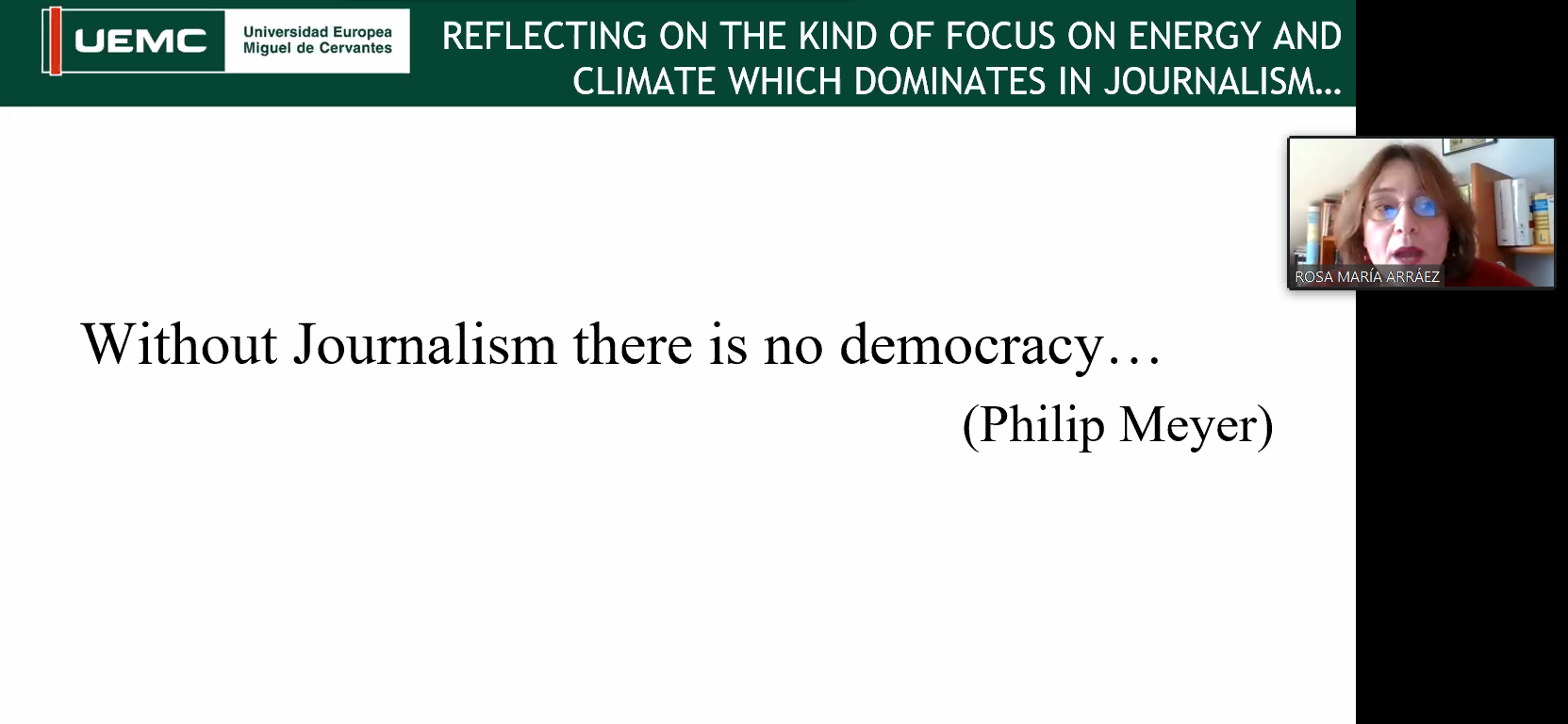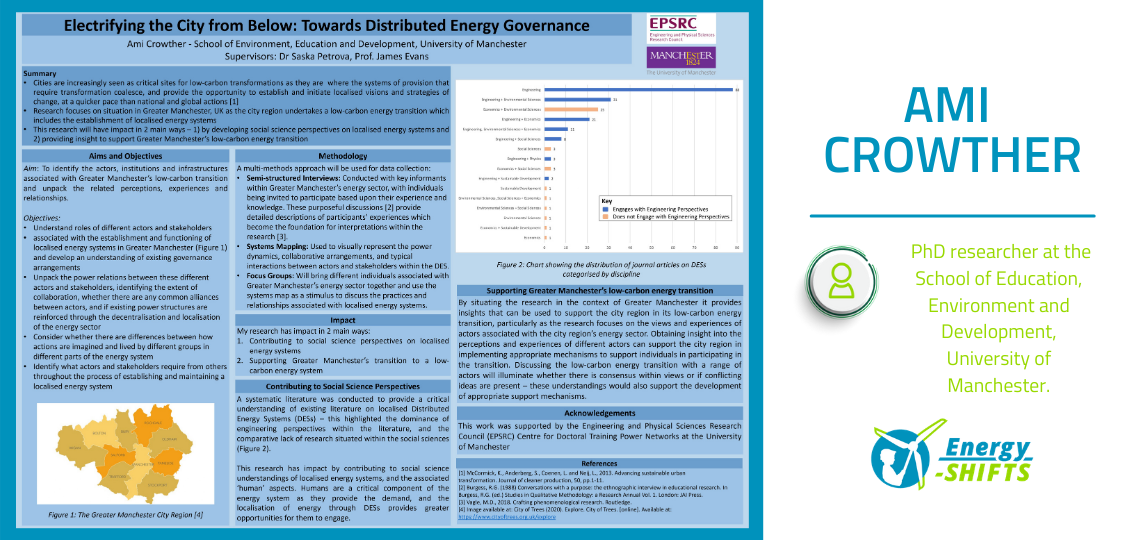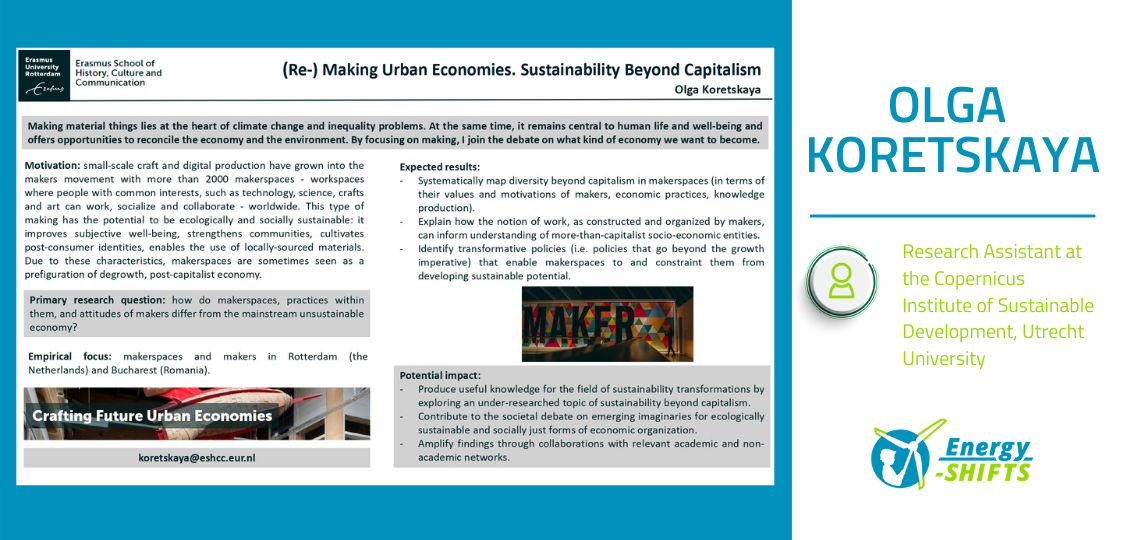In this interview, Energy-SHIFTS co-lead Dr. Rosie Robison looks back on the project and explains the lessons that the ARU team have taken from leading this EU funded project
What has your involvement as a partner in Energy-SHIFTS brought you?
Our involvement has brought us in-depth collaborations with partners from across Europe, including those we’d never worked with before. This has led to new professional relationships which will continue long after the end of the project. The opportunity to lead and contribute to a significant number of well-designed open access reports, which will continue to be useful reference points for ourselves and others.
What did you learn by participating with other partners (and ESR) in the same tasks?
The project has been a great opportunity to develop interdisciplinary skills and learn from others’ approaches, and work cultures. It has also hopefully offered some useful opportunities for early career researchers to participate in meaningful ways in a high profile project, and we have certainly learnt from them as well.
How useful have been Energy-SHIFTS for your work?
It has been a significant source of research data and research inspiration on the topics of SSH agenda setting and policy-research engagement, which are well summarised in the final ‘10 recommendations’ from the project. Our close working with DG RTD has enabled policy impacts including providing impetus for the European Union to commit to funding SSH in its research and innovation policies, leading the SET-Plan Steering Group to re-engage with energy-SSH, and developing specific SSH-inspired commitments in the €1.1bn spending in European Offshore Wind until 2030.
Finally, as the coordinator, there are always new skills to learn from working closely with Work Package leaders (and all partners) to achieve particular tasks, address challenges constructively, and make the most of each partners’ (as well as wider project participants’) interests and strengths.
How COVID19 affected your responsibilities in the project?
Of course, it meant a switch to organisation of online activities – including workshops and the final conference and consortium meetings – rather than face to face work. This requires slightly different design and facilitation. In addition we felt fortunate that we had been able to meet all the partners and build those necessary relationships before the pandemic struck. It would have undoubtedly been more difficult to build new relationship afresh if the project had began in summer 2020.
How do you think this kind of EU projects can help EU policies?
Impact on, and engagement with, EU policy is a two-way process. One of the fantastic things about the Energy-SHIFTS project has been the real engagement and interest shown by the Commission, and groups such as the SET-Plan steering committee. As the project has discussed, for too long societal insights have been neglected in the development of energy policy, however – whilst there is still much work to do – there is also now very clear appetite to change this, and quickly!
Would you like to participate in other EU project? Why?
Absolutely, there is a real sense of achievement when looking back over the project and the outputs, with more still to come!







